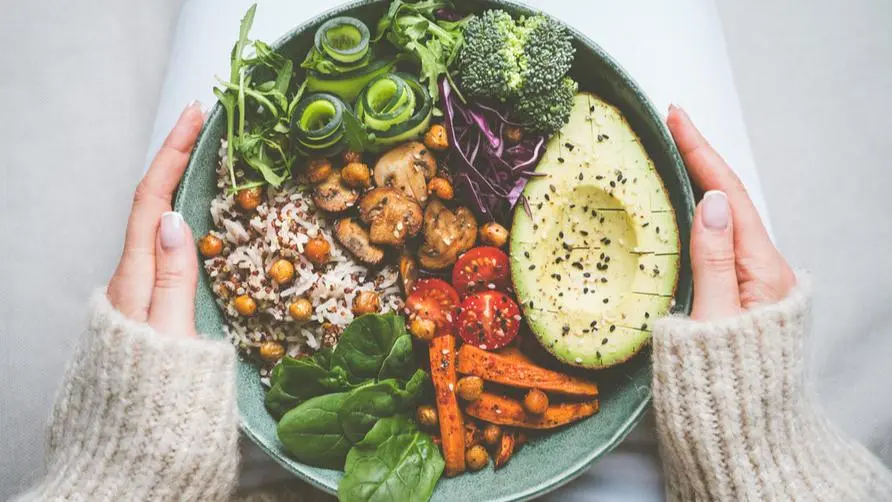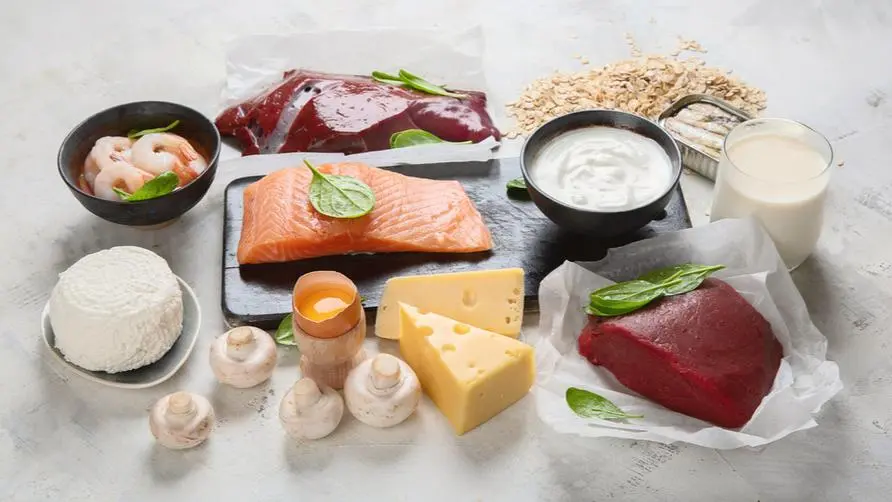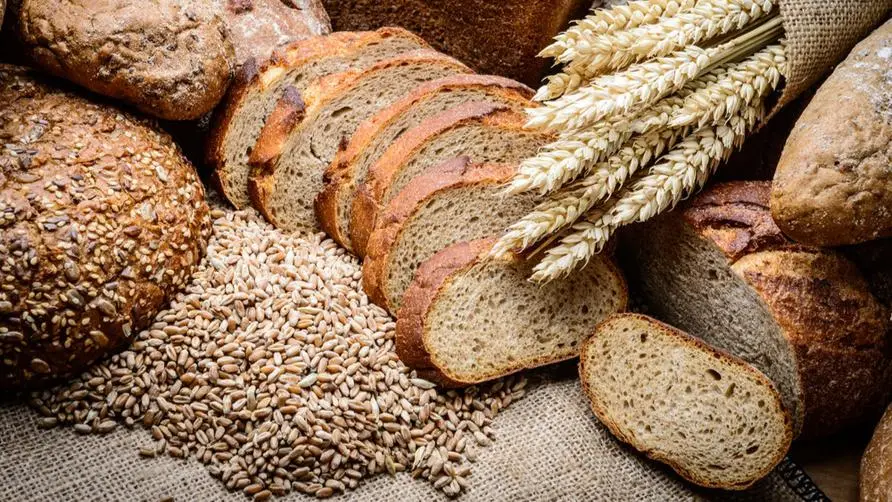Worried about malnutrition during a vegetarian diet? Experts answer myths: Eating right can also help "build muscle and lose fat"

In recent years, vegetarianism has gradually become a dietary choice for modern people who value health. Compared with the traditional religious beliefs, it is more like a pure dietary choice! Whether it is due to the emphasis on environmental issues, love for animals, or simply the desire to eat more vegetables, vegetarianism has become more aware and taken more seriously. In order to help people choose a vegetarian diet wisely, the Taiwan Ministry of Health and Welfare, Food and Drug Administration specially invited nutritionist Hou Yizheng to give detailed explanations to the people.
Does being a vegetarian necessarily lead to nutritional imbalance? Nutritionist: You can also get protein on a vegetarian diet!
Looking at the market, Taiwan’s choice and richness of vegetarian restaurants have already surpassed the traditional impression of religious factors. Nutritionist Hou Yizheng said that due to the early demand for “religious ingredients”, various companies were committed to developing various soybean vegetarian ingredients, thus establishing the strength and competitiveness of Taiwan’s vegetarian market. Extending from religion to environmental protection and health awareness, vegetarianism has become more and more approachable. From convenience stores on the streets to breakfast restaurants, the diversity of vegetarian items can be seen.
However, there are many myths surrounding diets, and vegetarianism is certainly no exception. Nutritionist Hou Yizheng explained that in the past, many people thought that being vegetarian could easily lead to nutritional imbalances. Most of the reasons were that they believed that the source of protein was meat. In fact, there are many plant-based proteins in vegetarian food, so you can get protein through vegetarian food. It works. A few vitamin and mineral deficiencies are easily seen in vegans, but such deficiencies can also be cured by taking nutritional supplements.
In addition, in addition to vegetarianism, the “Plant Based Diet”, which has become increasingly popular in recent years due to the popularity of healthy eating, is also favored by many people who lose weight. The Taiwan Ministry of Health and Welfare quoted the guidelines issued by the EAT-Lancet Committee in 2022 and stated that the content of a plant-based diet is mainly plant-based foods, such as whole grains, vegetables, beans, nuts and seeds, etc., and fish should be selected as appropriate, eggs, poultry and dairy products as dietary contents.
Which type of vegetarian diet is best for you? “Five major categories” can be understood at once
How do consumers meet their own vegetarian needs? The Taiwan Ministry of Health and Welfare actually has express provisions in regulations. The scope of control can be divided into: from strict to loose:
Fully vegetarian or vegan (no dairy, egg, or spicy ingredients)
Egg vegetarian (vegetarian or vegan and egg products)
Lacto-vegetarian (vegetarian or vegan and dairy products)
Lacto-ovo-vegetarian (vegetarian or vegan and dairy and egg products)
Plant five spices (containing five spices, milk and egg products, those containing milk or eggs must be stated in the name of the content)
The above detailed categories can also be easily identified through packaging markings. Faced with the dazzling array of vegetarian options on the market, Taiwan Food and Drug Administration reminds that no matter what kind of dietary choice, the most important thing is moderation and moderation. Only by choosing vegetarian products that are not overly seasoned or processed can you eat safely and healthily.
Can a vegetarian diet also help “build muscle and lose fat”? 8 must-eat “plant-based proteins” to understand at once
Based on the above, through which foods can protein in plant foods be obtained? In addition, many people with exercise habits seek to gain muscle by ingesting natural protein or brewing protein powder. High-quality protein sources are mostly found in lean meats such as chicken, beef, and pork, as well as seafood such as fish, crustaceans, etc. However, if you have a vegetarian habit or are unable to eat meat due to your religious beliefs, how can you obtain high-quality protein through a natural diet? According to various research recommendations, vegetarians can maintain existing muscle mass through the following 8 natural food sources, combined with moderate exercise:
1. Tofu
Unprocessed tofu made from soybeans is rich in complete protein and has a variety of nutrients. “Nutrients” research shows that tofu is a good source of calcium, manganese, selenium and isoflavones. Among them, “polyphenols” are more effective in lowering blood pressure, regulating blood sugar and lowering cholesterol.
One serving (85 grams) of tofu contains approximately 8 grams of protein.
2. Gluten
Gluten is mainly made from wheat gluten and water. In Taiwan, it is often eaten with porridge or added to home-cooked side dishes. Unseasoned gluten is rich in protein; American nutrition expert Lauren Panoff pointed out that gluten is often used as a natural vegetarian meat, and the protein content is not lost to chicken, beef and other meats. In addition, gluten is also rich in multiple nutrients such as calcium, manganese, and phosphorus, and moderate intake has certain benefits.
One serving (85 grams) of gluten contains approximately 64 grams of protein.
3. Quinoa
Quinoa is often added to rice, which is not only beneficial to absorbing more protein. Research published in “MDPI” also pointed out that quinoa has powerful antioxidant and anti-inflammatory capabilities, and regular consumption of quinoa can prevent various cardiovascular diseases. and metabolic diseases. Additionally, quinoa has been shown to have beneficial effects on immune function.
One serving (85 grams) of cooked quinoa contains approximately 8 grams of protein.
4. Buckwheat
It is a gluten-free quasi-grain, similar to quinoa. It contains a large amount of essential amino acids and is also an important source of phosphorus, manganese, copper, and magnesium. Research published in “Bentham Science” shows that regular consumption of buckwheat can help regulate cholesterol levels, fight inflammation in the body and lower blood pressure.
One cup (168 grams) of cooked buckwheat contains approximately 6 grams of protein.
5. Chia seeds
“Molecules” research shows that chia seeds are an excellent source of protein and provide high levels of unsaturated fatty acids, dietary fiber, vitamin B complex and other nutrients. In addition, studies have pointed out that regular consumption of chia seeds can reduce high blood pressure, diabetes and cardiovascular problems, and is related to helping weight loss and improving endurance in athletes.
Two tablespoons (28 grams) of chia seeds contain approximately 4 grams of protein.
6. Flaxseed
Flaxseed is an important source of plant-based protein, rich in insoluble fiber, aspartic acid, glutamic acid and other nutrients, which is helpful for improving immunity and lowering cholesterol. Flax seeds can be added to desserts, soups, or baked goods for a high-quality source of protein.
One serving (85 grams) of flax seeds contains approximately 5 grams of protein.
7. Spirulina
Research in the Journal of the Science of Food and Agriculture shows that spirulina is one of the microorganisms richest in protein, almost the same as soybeans and meat. In addition, spirulina provides rich vitamin B complex, vitamin C, magnesium, calcium and other nutrients, and has antioxidant, anti-inflammatory and other properties.
One tablespoon (7 grams) of flax seeds contains approximately 4 grams of protein.
8. Beans
According to a study in the “Journal of Medicinal Food”, beans are a rich source of protein and provide a large amount of dietary fiber, iron, calcium, folic acid and calcium. Since beans are low in calories, they can also help with weight loss and blood sugar control. For example, peas, lentils or edamame are all good sources and can be added to staple foods to increase protein intake.
One bowl (200 grams) of cooked beans provides 15 grams to 39 grams of protein.
Even though the above foods can help maintain muscle mass, vegetarians should still eat a balanced diet and exercise moderately, and should not prefer a single diet or neglect exercise. In addition, if you are allergic to the above foods, or have gastrointestinal problems or gastrointestinal history, you should consult a nutritionist or doctor first to avoid any impact on the body. The Taiwan Food and Drug Administration also reminds that plant-based meat, whether pure meat or prepared, is often seasoned during processing. You should taste the taste before adding salt or seasonings when cooking to avoid excessive burden on the body. In addition, plant-based meat or plant-based egg products contain many ingredients, so it is recommended to use less oil when cooking to avoid obesity.
Source:
Soy, Soy Foods and Their Role in Vegetarian Diets
Potential application of microalga Spirulina platensis as a protein source
Quinoa Secondary Metabolites and Their Biological Activities or Functions
Nutritional Quality of Legumes, and Their Role in Cardiometabolic Risk Prevention: A Review
The Current State of Knowledge on Salvia hispanica and Salviae hispanicae semen (Chia Seeds)
Further reading:





